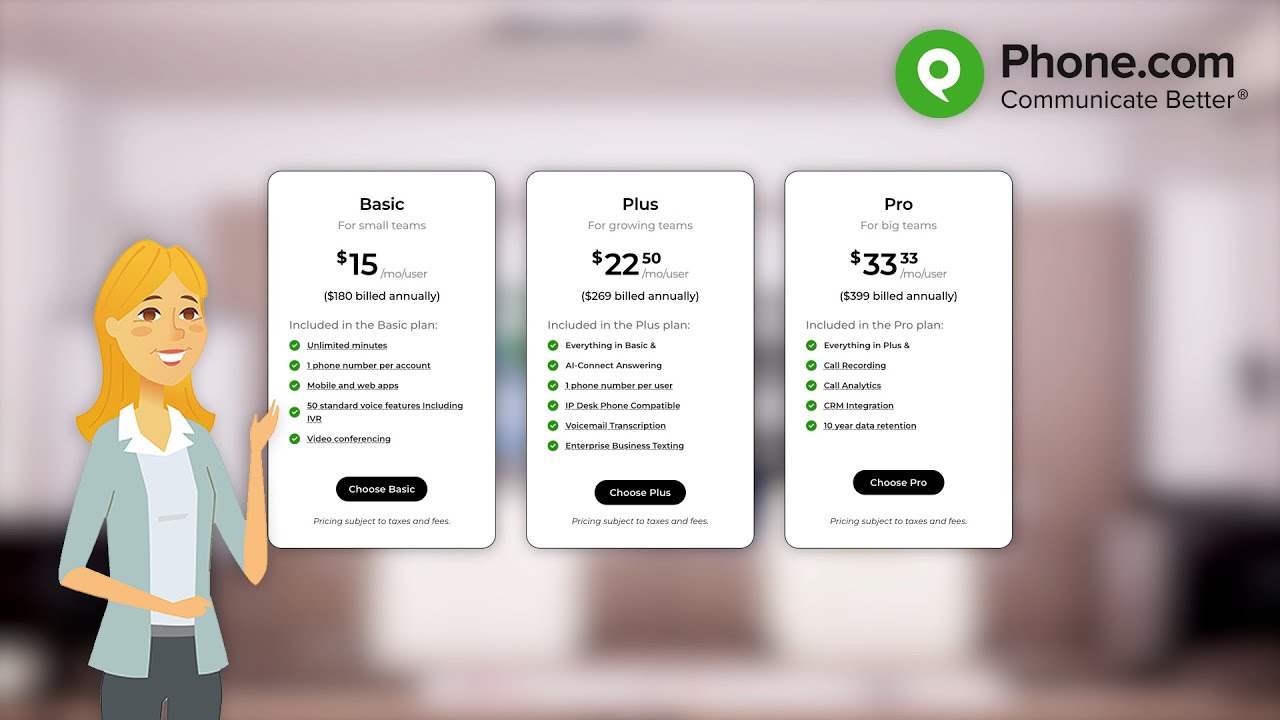Getting a business phone number in 2025 takes just minutes with modern VoIP technology.
- 31% of businesses now use VoIP systems for cost savings and advanced features
- Choose from local, toll-free, vanity, or international numbers to match your market
- Modern cloud systems eliminate expensive hardware while providing enterprise features
- Setup costs can be reduced by up to 90% compared to traditional phone systems
The right business phone number builds credibility and grows with your business.
Getting a dedicated business phone number has never been more important—or easier—than it is today. Whether you’re launching a startup from your kitchen table or expanding your established business, having a professional line of communication sets you apart from competitors still mixing personal and business calls.
The telecommunications landscape has transformed dramatically in recent years. Voice over Internet Protocol (VoIP) technology now powers the majority of business communications, offering features and flexibility that traditional landlines simply can’t match. Small businesses across every industry are making the switch to modern phone systems that grow with their operations.
According to recent industry data, over 31% of businesses currently use VoIP systems, and this number continues climbing as entrepreneurs discover the advantages of cloud-based communications. These systems eliminate the need for expensive hardware installations while providing enterprise-level features at small business prices.

Why Do You Need a Business Phone Number?
Establishing a separate business phone number isn’t just about looking professional—it’s about creating boundaries, building trust, and setting your business up for sustainable growth.
A dedicated business phone number immediately increases customer trust by 60% and provides critical separation between personal and professional communications. When customers see a dedicated business number, they immediately perceive your company as more established and trustworthy. This psychological advantage can be the difference between landing a new client and losing them to a competitor. Research shows that 60% of customers prefer to call companies via phone to complete transactions, making your phone number a critical touchpoint for customer satisfaction.
Professional boundaries matter more than you might realize. Mixing personal and business calls creates stress, confusion, and missed opportunities. With a dedicated business line, you can set specific hours for work communications, use professional voicemail greetings, and ensure important calls never get lost among personal conversations.
Your business phone number also becomes a valuable asset as you grow. Unlike email addresses or social media handles that might change, a well-chosen phone number can serve your business for decades. Customers remember catchy numbers, and consistent contact information builds familiarity and trust over time.
Modern business phone systems offer features that make small businesses more efficient and responsive. Call forwarding and voicemail transcription ensure you never miss important calls, even when you’re away from your desk. Auto-attendants can route calls to the right person or department, making even solo operations sound like larger companies.
What Types of Business Phone Numbers Are Available?
Choosing the right type of business telephone numbers significantly impacts how customers perceive and interact with your company. Each option serves different strategic purposes and customer bases.
Local Business Phone Numbers
Local numbers use area codes specific to geographic regions, making them ideal for businesses serving particular communities or markets. When customers see a familiar area code, they’re more likely to trust your business and answer your calls.
Local numbers work exceptionally well for service-based businesses like restaurants, law firms, medical practices, real estate agencies, and home improvement companies. Customers prefer working with local providers who understand their community’s needs and can provide quick, nearby service.
The psychological impact of local presence shouldn’t be underestimated. Even if your business operates remotely or serves multiple regions, having local numbers in key markets creates the impression of established local operations. Modern VoIP systems allow you to choose numbers from virtually any area code, regardless of your physical location.
Toll-Free Business Numbers
Toll-free numbers (800, 888, 877, 866, 855, 844, 833) signal national presence and established operations. These numbers remove cost barriers for customers calling from anywhere in the country, encouraging longer conversations and more detailed inquiries.
Toll-free numbers work particularly well for e-commerce businesses, customer service departments, consulting firms, and any company serving customers across multiple states. They project professionalism and accessibility that local numbers can’t match when targeting broader markets.
The “free to call” aspect remains psychologically important, even though long-distance charges have largely disappeared with mobile plans. Customers still associate toll-free numbers with legitimate, established businesses willing to invest in customer accessibility.
Vanity Numbers
Vanity numbers use letters to spell out words related to your business, making them incredibly memorable and effective for marketing. Numbers like 1-800-FLOWERS or 1-855-CONTACTS stick in customers’ minds far better than random digit sequences.
These numbers excel in radio advertising, billboards, and word-of-mouth marketing because customers can easily remember and share them. Service businesses often benefit tremendously from vanity numbers that describe their specialties, like 1-800-LAWYERS or 1-888-PLUMBER.
The memorability factor creates compound marketing value over time. Every satisfied customer becomes a walking advertisement when they can easily remember and share your catchy number with friends and family.
International Numbers
International business phone numbers allow companies to establish local presence in foreign markets without physical offices. These virtual numbers forward calls to your actual location while displaying familiar local numbers to international customers.
This option particularly benefits online businesses, consulting firms, and service providers expanding into new countries. Customers prefer calling local numbers over international ones, both for cost reasons and trust factors.
Advanced VoIP systems can provide phone number for business operations in dozens of countries, complete with local caller ID and professional features that match regional expectations.
For more detailed information about selecting the right business phone number type for your specific needs, explore comprehensive business phone number resources that can guide your decision-making process.
How to Get Your Business Phone Number: Step-by-Step
 Acquiring a business phone number through modern VoIP providers takes less than 10 minutes and can typically be completed entirely online. Here’s how to navigate the process efficiently.
Acquiring a business phone number through modern VoIP providers takes less than 10 minutes and can typically be completed entirely online. Here’s how to navigate the process efficiently.
Choose Your Service Type
Your first decision involves selecting between traditional landline service and VoIP systems. VoIP converts voice signals into digital data packets that transmit over internet connections, offering lower costs, advanced features, mobile compatibility, and easier scaling as your business grows.
Most small businesses benefit from cloud-based VoIP systems that require no special hardware and work with existing internet connections. These systems provide enterprise-level features at small business prices while supporting remote work and mobile operations.
Select Your Provider
Research providers carefully, focusing on features that match your business needs rather than just price. Look for companies offering reliable customer support, clear pricing structures, and features like call forwarding, voicemail transcription, and mobile apps.
Read customer reviews and check uptime guarantees, as phone service reliability directly impacts your business operations. Providers with 99.9% uptime or higher ensure your customers can reach you when they need to.
Choose Your Number
Browse available numbers in your desired area code or toll-free range. Most providers offer search tools that let you filter by specific digits, patterns, or vanity word options. Take time to find a number that’s easy to remember and fits your brand.
Consider getting multiple numbers if you serve different markets or want separate lines for sales, support, and general inquiries. Having dedicated numbers for different purposes makes call tracking and management much easier.
Configure Your Settings
Set up essential features like voicemail greetings, call forwarding rules, and business hours. Most modern systems include web-based control panels where you can manage these settings yourself without technical expertise.
Configure mobile apps on your smartphone so you can make and receive business calls from anywhere. This flexibility proves invaluable for entrepreneurs and remote teams who need consistent communication capabilities.
Test Your System
Before announcing your new number, test all features thoroughly. Make calls to and from the number, check voicemail functionality, and verify that call forwarding works correctly. Send test text messages if your system includes SMS capabilities.
Have colleagues or friends call your number from different phone types to ensure compatibility and audio quality. Address any issues immediately rather than discovering problems after customers start calling.
What Features Should You Look For?
Modern business telephone numbers come with feature sets that can dramatically improve your communication efficiency and customer experience. Here are the must-have capabilities that separate basic service from truly professional systems.
Call Management Features
Advanced call routing ensures every call reaches the right person or department, even in small organizations. Auto-attendants and live receptionist services can greet callers professionally and direct them based on their needs, making solo operations sound like larger companies.
Call forwarding and find-me/follow-me features ensure you never miss important calls, whether you’re in meetings, traveling, or working from different locations. These features automatically route calls to your mobile phone, alternate numbers, or voicemail based on your availability.
Mobile Integration
Seamless mobile apps let you make and receive business calls using your professional number from any location. This capability has become essential as 35% of workers who can work remotely do so, requiring communication tools that support distributed teams.
Look for systems that provide desktop and mobile apps with feature parity, ensuring consistent functionality regardless of which device you’re using. The best platforms make switching between devices during calls seamless and transparent to callers.
Communication Tools
Voicemail transcription converts voice messages to text, allowing you to quickly scan and prioritize messages without listening to recordings. This feature saves significant time when managing high call volumes or urgent situations.
Business text messaging capabilities enable customer communications beyond voice calls. Many customers prefer texting for quick questions, appointment confirmations, or follow-up communications, making SMS integration valuable for customer service.
Analytics and Reporting
Call tracking and analytics help you understand customer communication patterns, peak calling times, and missed call trends. This data enables better staffing decisions and identifies opportunities to improve customer service.
Look for systems that provide detailed reporting on call duration, wait times, and caller demographics. These insights help optimize your communication strategy and measure the effectiveness of marketing campaigns that drive phone inquiries.
Integration Capabilities
Modern phone systems should integrate with your existing business tools, including customer relationship management (CRM) software, email platforms, and scheduling systems. These integrations streamline workflows and eliminate data entry redundancy.
Calendar integration allows automatic call scheduling and ensures important calls don’t conflict with existing appointments. CRM integration can display caller information automatically, providing context for more personalized customer interactions.
Security and Compliance
Professional phone systems include security features like encryption, fraud protection, and compliance tools for regulated industries. Healthcare businesses, financial services, and legal practices often require specific privacy and security capabilities.
Look for providers offering HIPAA compliance, data encryption, and secure call recording if your industry requires these protections. These features ensure your business communications meet professional and legal standards.
How Much Do Business Phone Numbers Cost?
Business phone numbers typically cost $15-25 per user monthly for VoIP systems, with significant savings compared to traditional landlines. Understanding the true cost of business phone systems requires looking beyond monthly subscription fees to consider total value and long-term expenses. Smart financial planning in this area can significantly impact your business operations and growth potential.
Modern VoIP systems typically cost significantly less than traditional landline installations while providing far more features. Small businesses can save up to 90% on communication costs when switching from traditional phone systems to cloud-based solutions.
Most business phone services use per-user pricing models that scale with your team size. Entry-level plans often start around $15-25 per user per month and include essential features like unlimited calling, voicemail, and mobile apps. Higher-tier plans add advanced features like video conferencing, call analytics, and CRM integrations.
Consider the total cost of ownership when evaluating options. Traditional phone systems require expensive hardware, installation fees, and ongoing maintenance costs that VoIP systems eliminate. Cloud-based systems also reduce IT support requirements since providers handle system maintenance and updates.
Factor in hidden costs that traditional systems often include: long-distance charges, hardware replacement, system upgrades, and technician visits. Modern VoIP providers typically include these elements in their monthly fees, making budgeting more predictable and manageable.
Many providers offer flexible pricing options including monthly or annual billing, with discounts for longer commitments. Some services provide free trials or money-back guarantees, allowing you to test functionality before making financial commitments.
Look for transparent pricing without hidden fees or surprise charges. The best providers clearly outline what’s included in each plan and any additional costs for extra features or usage overages. This transparency helps with accurate budgeting and prevents unexpected expenses.
Which Business Phone Number Option Is Right for You?
Selecting the optimal business phone number requires careful consideration of your specific needs, customer base, and growth plans. The right choice can enhance customer relationships and support business expansion, while the wrong choice might limit your potential.
Start by analyzing your customer demographics and geographic distribution. Local businesses serving specific communities often benefit most from local numbers that create immediate trust and familiarity. Companies serving customers across multiple states or countries might prefer toll-free or international options that remove geographic barriers.
Consider your industry’s communication patterns and customer expectations. Professional services like law firms and medical practices often benefit from local numbers that convey community connection. E-commerce businesses and customer service operations frequently prefer toll-free numbers that encourage longer, more detailed conversations.
Evaluate your marketing strategy and how your phone number fits into broader promotional efforts. Vanity numbers work exceptionally well for businesses relying on radio advertising, billboards, or word-of-mouth marketing. Standard numbers might be perfectly adequate for companies primarily using digital marketing channels.
Think about your long-term growth plans and how your phone system can scale accordingly. Systems that easily add new numbers, users, and features provide flexibility as your business evolves. Consider whether you might need multiple numbers for different purposes or locations in the future.
Assess your team’s working style and mobility requirements. Remote teams and mobile workforces need systems with robust mobile apps and flexible call routing. Traditional office environments might prioritize desk phone compatibility and conference room integration.
Budget considerations should include both current costs and future scalability expenses. While price is important, the cheapest option isn’t always the most cost-effective when considering features, reliability, and growth potential. Invest in systems that can support your business objectives without frequent changes or upgrades.
Transform Your Business Communications Today
Establishing a professional business phone number is one of the most impactful decisions you can make for your company’s growth and customer relationships. The right communication system enhances credibility, improves customer service, and provides the flexibility needed for modern business operations.
With VoIP technology making advanced features accessible to businesses of all sizes, there’s never been a better time to upgrade your communication capabilities. Whether you choose local numbers for community connection, toll-free options for national reach, or specialized solutions for unique business needs, the key is selecting a system that grows with your ambitions.
The investment in professional communication tools pays dividends through improved customer satisfaction, increased efficiency, and enhanced business opportunities. As your business evolves, your phone system should adapt seamlessly to support new challenges and opportunities.
Ready to establish your professional business phone presence? Phone.com makes it simple to get started with flexible plans, comprehensive features, and exceptional support designed specifically for growing businesses. Explore your options today and take the first step toward better business communications.
Frequently Asked Questions
How long does it take to get a business phone number?
With modern VoIP providers, you can typically get a new business phone number within minutes of signing up. The process involves selecting your plan, choosing your number, and configuring basic settings through an online portal. If you’re porting an existing number from another provider, the process can take 1-15 business days depending on your current carrier’s response time.
Can I keep my existing phone number when switching providers?
Yes, you can port your existing business phone number to most VoIP providers through a process called number portability. You’ll need to provide account information from your current provider and complete a transfer request. During the transition period, many providers give you a temporary number so your business operations continue uninterrupted.
Do I need special equipment for a business phone number?
Modern VoIP business phone systems work with your existing devices, including smartphones, computers, and tablets. You don’t need to purchase special equipment to get started. If you prefer traditional desk phones, most VoIP providers offer compatible hardware options, but they’re not required for basic service.
How much should I expect to pay for a business phone number?
Business phone service costs vary widely depending on features and provider. Basic VoIP plans typically start around $15-25 per user per month and include essential features like unlimited calling, voicemail, and mobile apps. More advanced plans with features like video conferencing, call analytics, and CRM integrations typically cost $30-50 per user monthly.
What’s the difference between local and toll-free numbers for business?
Local business phone numbers use area codes specific to geographic regions and help establish community presence and trust. Toll-free numbers (800, 888, 877, etc.) allow customers to call without long-distance charges and project national presence. Local numbers work well for service businesses targeting specific areas, while toll-free numbers benefit companies serving customers




